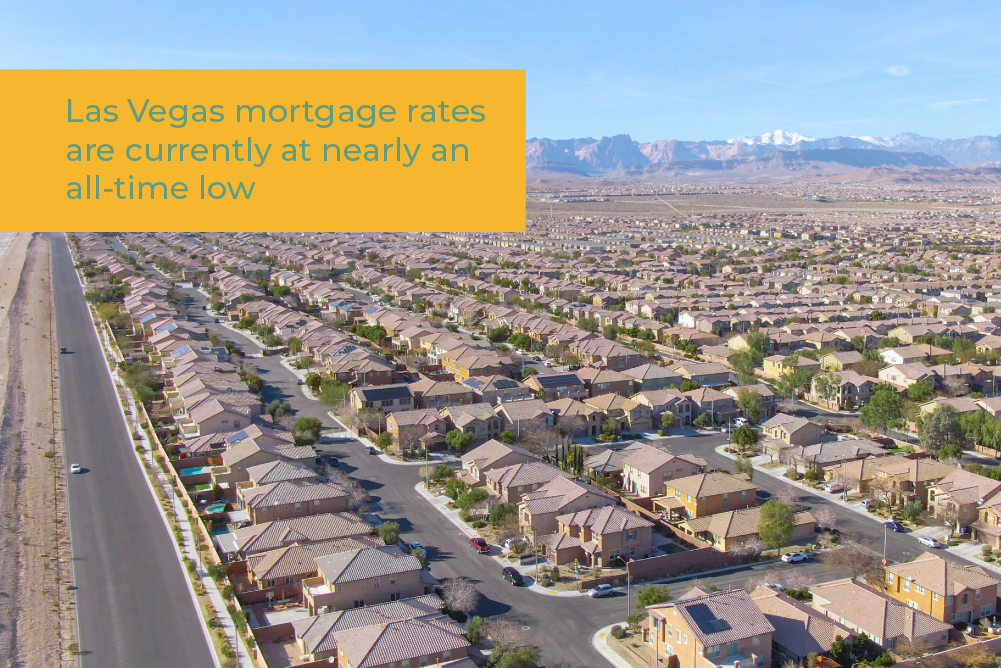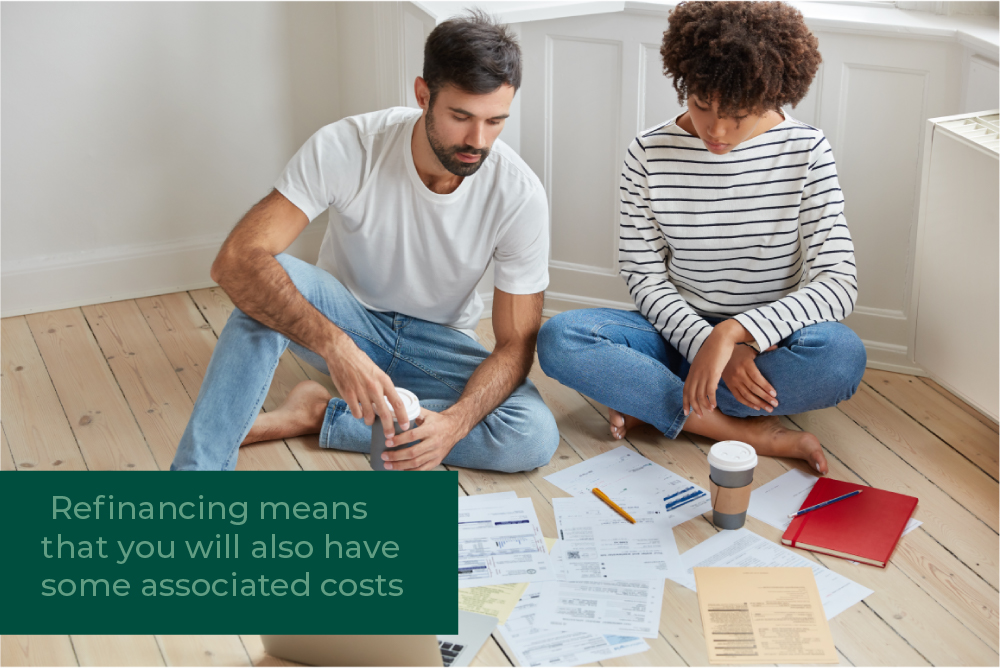Refinancing Your Home Loan in Las Vegas

If you’ve taken out a home loan, you might be wondering if now is the time for refinancing your mortgage. There are several benefits associated with refinancing your home, including the potential to save substantial amounts of money throughout the mortgage. However, as great as that might sound, you ultimately need to determine if refinancing is right for you. A loan officer in Las Vegas can help you make that determination.
Home Loan Refinancing
Refinancing a mortgage means that you are swapping out current home loans in Las Vegas that you have for a new one. You will already have a lender from your first loan, which gives you the option of either sticking with the original lender or choosing a new one. Depending on your needs, there may be several advantages to refinancing, including reducing the loan’s lifespan, lowering your monthly Las Vegas mortgage rates, and using your home equity for other purposes.

Before deciding whether or not refinancing your home loans in Las Vegas is a good idea, it’s essential to consider all the options available for refinancing your loan and determine if the short-term and long-term savings are worth the refinance. You can consider the cost of refinancing over a short time every month and throughout the loan’s lifetime. (Read more on home equity and debt consolidation loan here.)
Low Mortgage Rates
One benefit of refinancing a home loan is that Las Vegas mortgage rates are currently at nearly an all-time low. Any new rate that you get might be 1% – 2% lower than your current mortgage rate if you choose to refinance.

Consider the Costs
Refinancing means that you will also have some associated costs. Therefore, before you decide to refinance a mortgage, you’ll want to make sure that you add up all the costs. The costs you will want to consider include:
- Prepayment penalties
- Closing costs
- Taxes and insurance
- Lower rate

The prepayment penalty is one of the first costs you will want to ask a mortgage lender about. The prepayment penalty is a fee that you will incur if you refinance your mortgage and pay off your current home loans in Las Vegas earlier than expected. The prepayment penalty can be quite expensive and even offset all of the savings that you would get through refinancing. If you plan to pay off your current loan early, be sure to account for the prepayment penalty cost in advance.
Closing costs are another expense that you will want to consider. The closing cost is an upfront cost that includes various items, including credit fees, appraisals, lender fees, insurance, taxes, escrow, and title fees. Closing costs hover around 5% of your home loans in Las Vegas. However, they can range from 3% to about 6%. If you are short on cash at the time, the closing costs may simply be added to the total amount of your loan. Alternatively, they can be included as part of a higher interest rate. Most people find that it takes about two years to pay the cost of the closing fees. Refinancing is generally not recommended for people who plan to move in the next few years, but a mortgage lender can provide a better answer for your situation.
Taxes and insurance fees are other costs that you will want to ask a mortgage lender about. Those fees include real estate taxes and the cost of home insurance. Leaving these numbers out of the equation could mean you don’t have the most accurate estimate of your monthly expenses and savings.
Finally, you can also refinance at a lower rate. Las Vegas mortgage rates are subject to change, and it can be incredibly tempting to refinance when they drop. However, it’s important to remember that the mortgage costs include more than just the interest rate. You won’t necessarily save money throughout the loan’s lifetime simply by getting a lower rate on your mortgages in Las Vegas. If you want to recover the cost of refinancing a loan, it’s best to look for a loan with an interest rate somewhere between 1% and 2% lower than your current rate. Additionally, you should have a minimum of 20% equity in your home. If your interest rate would change only slightly, such as less than 2%, you may want to consider whether or not you want to refinance at the current moment.
Choose a Shorter Term
If you are thinking of refinancing, you may want to ask a loan officer if a shorter term is right for you. If you have the budget to spare, you can consider looking for home loans in Las Vegas with a shorter term, such as 10-15 years. A shorter loan term will also have a lower interest rate. As with a primary mortgage, you may find that your monthly expenses are higher with a loan with a shorter duration, but your interest rates will be lower, and you will be able to pay off the mortgage more quickly.

Home Loan Refinancing – How Much Does a Loan Cost?
When considering how much it costs to refinance a mortgage, a loan officer in Las Vegas will say several different expenses to consider. Generally, the total cost includes the mortgage payment, along with the mortgage insurance and taxes. In total, all these costs combined should be no more than 30% of your monthly income. Your gross income, which includes car payments, credit card payments, and expenses associated with other loans, should account for no more than 40% of your expenses before taxes. These
payments are also called your gross income.
Consider a Cash-Out Refinance
Another consideration to think about is a cash-out refinance. A cash-out refinance is possible if you already have equity in your home. The cash-out refinance an option that lets you use cash from the home equity to pay for other expenses such as home improvement projects. Alternatively, you can consolidate debt from various sources such as lines of credit, credit card debt, and mortgages if you have more than one. If you choose to get a cash-out home loan, the equity in your home will be much lower. For example, if you have a home worth $250,000, and you have a principal payment left of $150,000, your remaining equity is $100,000. If you have a total of $50,000 in cash when you use a cash-out refinance, the home equity that you will have left amounts to $50,000. To avoid losing equity, you can use the money for certain expenses, such as home improvement projects. You can also use the money to refinance debt from credit cards with a higher interest rate, but you’ll want to avoid charging too much to your credit cards. That way, you will avoid losing all the savings you would otherwise gain through refinancing.
Get an Investment Property
If you use a cash-out refinance, you may also be able to purchase real estate in the form of an investment property. The money you spend on a down payment for the investment property can also help pay for a vacation home or a second home. In turn, that can allow you to take a vacation or put the money towards a rental home. At a minimum, the additional money you get from an investment property can help you cover the expenses associated with homeownership and even give you some additional funds for whatever expenses you choose.

To learn more about refinancing, ask an experienced loan officer in Las Vegas for assistance today.








